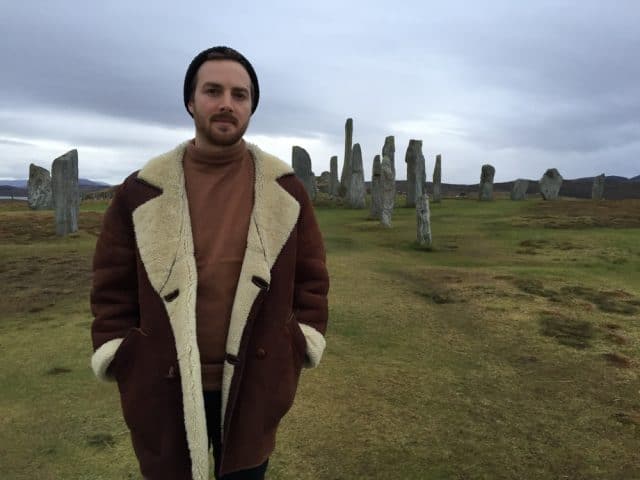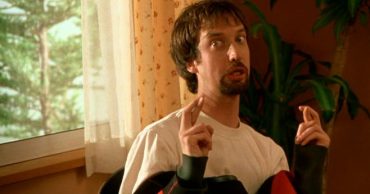
Here at TVOvermind, we think that it’s important to cover all aspects of the media. While our focus is typically on television and film, one of the most popular forms of media today is the podcast.
Recently, I’ve found myself listening to more and more podcasts to pass time time while working on other things, and one of my favorites is Unexplained, a podcast “about mysterious real life events that continue to evade explanation today.” Episodes of Unexplained, which just recently concluded its ten-episode first season (not counting its between-episodes “Extras”), can be varied, but all try to have semblance of blending radical scientific ideas with the paranormal and the supernatural.
Because of how much I enjoyed the first season of Unexplained, I reached out to the podcast’s creator, Richard MacLean Smith, to talk about the series and its future.
TVOM: To start off, tell me a little bit about yourself and about how you got the idea for Unexplained. Were you inspired by other podcasts, or did the inspiration come from somewhere else?
Richard MacLean Smith: A good friend of mine is a real heavy conspiracy theorist with a particular interest in UFOs and esoteric ideas and we had actually planned to make a show together. It was going to be a podcast, which I guess you could say for the time was a more traditional approach — essentially two guys talking about strange and weird things. But we couldn’t ever seem to find the time to get together and as the months went by I started to think on my own a bit more about the show and what it should be. At the time I was listening a lot to the usual suspects like This American Life, Serial, that sort of thing and then my girlfriend recommended Lore to me, and it was a bit of a game changer — aside from being an incredible show, it was the moment I realized I could actually do the thing on my own. I used to be a musician and know how to record a bit, I had all the equipment, basically everything I needed. But more than that, it made me see what the show could be, that it could in my own small way be a real piece of art.
I already had a few of the stories plotted, but it was the approach of taking the stories and trying to tell them as they would have unfolded in real time — it’s not particularly unconventional, but certainly for a podcast that talks about real life strange and supernatural events, I hadn’t come across anything like that and it struck me that this might actually be a half decent idea, especially involving stories from the UK; I suppose that was quite unique as well. From that point on it was a bit of a race really to get the first episode out before someone else did something similar first! Then, it was a case of realizing, too, that I could really do what I wanted with the podcast; I was my own boss, I could have my girlfriend play the part of someone, I could quote poetry, use my own music, all those things.
As for the inspiration for the show, I am a huge fan of horror and science fiction, but also, like many people, unexplained mysteries — the more bizarre and impenetrable the better. Then, last year I was in a charity shop in Inverness and came across a book of magazines from the 80s called Unexplained. Someone had collected them and put them together and I just realised that was it right there! Weirdly, though, I’ve not used any of the stories from that series. I think many of them have been quite roundly debunked since…
TVOM: It’s clear from the beginning that a ton of research goes into the topics that you discuss in the podcast. How do you go about choosing a topic, and what’s that research process like?
Smith: I really only have 3 criteria that a story must satisfy: one, that it has a human element at the heart of it; two, that it is actually a story and not just an event (for example, like just saying, “this person was abducted on this day, and that’s all they can remember”); and [third], that the unexplained mystery has never been sufficiently debunked. There are so many stories of this ilk flying around on the internet (where I spend a lot of time generally and researching for the show), but, surprisingly very few that are still genuinely still mystifying. Occasionally I’ll come across a story that sounds amazing (like the Fox sisters, for example, who claimed to have been psychically communicating with spirits), and you think “wow that is such a rich story, it has everything: fascinating historical context, atmospheric location, they’re sisters, etc,” but then before long, you find actually they confessed to making it up; so for me, that’s the end of the story in terms of including it in the show. I’ll still include it, but not in the context that it is one of the unexplained mysteries[.]

TVOM: It seems like the “unexplained mystery” podcast is becoming incredibly popular these days. Why do you think that’s the case?
Smith: It’s really just a basic instinct, I think; the unexplained mystery is so hard to resist — it’s a huge part of storytelling, leaving the listener wanting to know what happens next. In the process of storytelling, I don’t know what the phraseology is exactly, but there’s a principle about wanting to know “what’s in the box” — which basically, as you may well know, is setting up some kind of compelling revelation that is hiding in a box — which in some cases can be literal. The trick, then, is just never opening the box; as long as the box remains shut, people are going to want to know what you are keeping in there. For the stories I tell, it’s a little different in that we never see for sure what is in the box, but I think people just love to imagine and speculate about the world around them, and it doesn’t have to be some sort of delusion; it can be fun more than anything else.
Apologies for going wanky, but there is a quote by philosopher Roger Scruton…which goes something like, “The consolation of imaginary things is not imaginary consolation,” and that’s one of the principles I’ve built the show on.
TVOM: Even though they each have things that separate them from others, podcasts of this nature are all similar in many ways. What makes Unexplained different, and how do you think it stands out among the pack?
Smith: As I mentioned above, I think partly it’s the way I have attempted, [when] possible, to reveal the story of the events as they unfolded in real time, but also that on the one hand I don’t approach the subject with any kind of hysteria, but then on the other I don’t dismiss anything out of hand either – I just tell the story with all the facts that we have to go on. The point being that many, if not all of the people who are featured in the episodes, I think, aren’t trying to mislead anyone; I think they saw what they saw, or heard what they heard, whether there is anything ‘unnatural’ or untoward about what has happened is not for me to decide. I think this tone is important to the show also.
The other element I think that people have responded to is trying to give the events a scientific context, and again, I’m not an academic nor a scientist, and I am weary of veering into Quantum mysticism — because despite some of the more wild theories, I am a believer and lover of the principles of science and value that as our only true chance of getting to the bottom of just what the hell is going on (in life and the universe generally!). BUT, that said, I do like to humor myself that there may be some crossover between what we traditionally thought as supernatural and what may in fact be a strange quirk of physics, but I try to bring the ideas in more as a way to provoke people’s imaginations and introduce them to some really incredible theories — as opposed to offering any genuine answer to the phenomena.
And then on top of that all, the music kind of brings it all together, and although neither of these elements are particularly novel in their own right, something about the way they all come together makes the show what it is.
TVOM: I mentioned to you that my favorite episode of Unexplained (so far) is “The Spaces that Linger,” the episode dealing with Aleister Crowley. What’s been your favorite episode to research? Do you find that some “cases,” for lack of a better word, end up being much more interesting than you expected when you began (or vice versa)?
Smith: Thank you, I’m glad you liked it — I’d been holding back the Crowley episode for a while as I thought it would make a nice bookend to the first season as the first episode talked about him a bit. He really was quite an extraordinary character…
Ha, funnily enough, they have never been less interesting (without fail they always end up being more interesting in one way or another), but, and it has only happened once, I did start a story that half way through I realized didn’t quite fit my three criteria. In the end, I had to work quite hard to smooth it out as it felt too late to start a different one. It actually ended up being one of my favorites — it was the story of the Russian submarine K-219, which I think having looked into, we can well assume was rammed by a US submarine. But I was really heartbroken by the story of the young Russian sailor — Sergei Preminin – who lost his life saving the other men so it was important to find a way to get the story to work to include that. I think I just about managed to get away with it, and it gave me an excuse to read some Lovecraft at the end, so it was all fine.
I actually like the story of the first episode the best, but I’m not so happy with the production as it was one of the earlier ones, and I was a bit more amateur then. It turns out speaking into a microphone in a silent room on your own and trying to sound natural is a lot harder than you might think! I also love the Eilean Mór episode.
TVOM: Finally, what do you imagine for the future of Unexplained?
Smith: So as you may know, I just finished my first season and will look to bring season two out a little later in the year — partly for a breather, but also I think it’s better suited to the darker months of the year[.]
I’ve really enjoyed doing the show how I‘ve done it so far, but I feel like it needs to evolve somewhat to keep me and the listeners interested; so, you may see something a bit more ambitious in the next season. I won’t say too much, but the basic premise will be [that] instead of doing ten short individual stories, I’m going to take one and make that the whole season. I’m not quite sure if it will work, but that’s the plan for now[.]
I want to thank Richard MacLean Smith so much for speaking with me, and I encourage everyone to listen to the Unexplained podcast as soon as you’re able. Season one recently ended, and the second season is scheduled to start later this year. As always, let us know your thoughts on Unexplained down below!
 Follow Us
Follow Us





